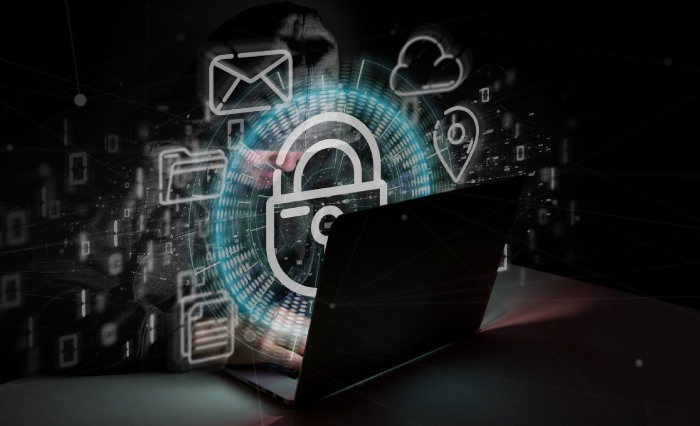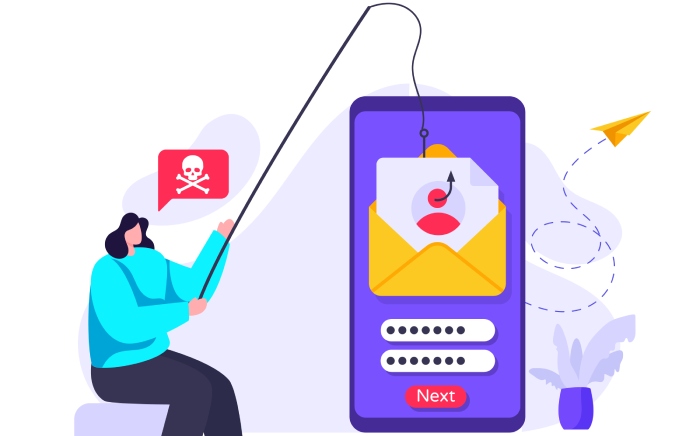Tax season is often punctuated with a mad rush for closures and submissions. Both individuals and organizations fight against time to fill in their tax receipts and submit them. Tax season is also the time when phishing agents look forward to a whole lot of good catches. Phishing baits are sent out as emails to many recipients, many of whom fall for it, leading to a catastrophe. Malicious actors use the information to defraud the victim or even steal their identity. Malicious actors are successful at creating enough panic in the ranks of IT Security by using impersonations. Phishing has been an age-old exercise, and with advanced technology, it has only got more sophisticated, becoming a more formidable threat.
Alarming Statistics
The below graph shows the scams and phishing attacks in the first two quarters of the year 2020. The period between January and April showed the highest consistent percentage of attacks. It is partly due to the tax season when most individuals and organizations file their tax returns, which is the season that greatly interests malicious actors.
Source:Securelist.com
The consistency of the attacks shows the tenacious attitude of the phishing community. There have been many counters created by IT Security teams the country over. Nevertheless, statistics over the years lay bare, displaying the hard fact that phishing has become more sophisticated over the years.
Scams To Look Out For
Following are the most common phishing scams that make the rounds during the tax season.
Locked Account
This tax scam is the most common of all. Malicious actors send an email to the registered email address, informing them that the tax return is restricted. The email will pretend to be sent through an IRS mail server. It will have the IRS logo and a link that will take the recipient to another page, which will ask for login credentials. Most of the time, the email will impersonate TurboTax, which is a popular tax preparation software. Emails impersonating TurboTax generally inform the recipient that their TurboTax account has been locked and credentials have to be typed in again, or the login ID and password need to be changed. These emails’ objective is to convince the recipient to click on the provided links and steal their information.
Updating Tax Filing Information
In the second most common phishing exercise used by malicious actors, the emails impersonating the IRS ask recipients to update their tax filing information. These emails are comprehensive with their activities, and most users fall prey to them. These emails have a link that takes them to an HTML website that asks for their personal information. Once the user types it in, the malicious actor will have unwarranted access to their personal tax information.
Tax Receipts From The IRS
When it comes to tax frauds and evasion, the IRS has an uncompromising stand. Hence, when someone receives an email in the IRS’s name talking about a tax deduction, there is a measure of distress, which helps gain attention. There are attachments of receipts sent alongside the fake email. These attachments are malware that may cause untold harm to information systems and the network once clicked. However, given the tone and looks of the emails, most users fall for it.
Refund Eligibility
The final nail in the phishing coffin lets the recipient know that they are eligible for a tax refund. A significant part of such emails is phishing emails sent to hoodwink the user. Though the subject usually is something to celebrate, it may also cause much heartburn when it is a phishing email. The email will have a link where the user would be advised to click to initiate the refund. Most rush for it. Once clicked, the malware may infect the system or the network, or a new page would appear asking the user to log in with their SSNs. Either way, it is going to be a disaster for the user.
Tips For Employers To Stay Safe From Phishing During Tax Season
Employers have to take the maximum precautions and implement the proper safeguards to stay protected from phishing scams’ ill-effects.
Inculcate Awareness Among Employees
Awareness is the greatest weapon against tax scams and phishing. As employers, it is their responsibility to inform their employees of the pitfalls caused by phishing attempts, especially while dealing with tax information. Leakage of such information due to employees’ negligence can be damning and may lead to severe complications and loss. Hence, regular sensitization sessions are necessary.
Updated Anti-Phishing Tools
Systems need to be updated and anti-phishing software installed across the entire network. Email protection software is a necessity in these times and must be used to counter malicious actors.
Network Security Tools
IT Security teams must be aware of all the possibilities of an attack and be adequately prepared. Network security is a prime responsibility and has to be covered at all times. Phishing agents target the networks to plant malware for future usage. The installed malware stays hidden without letting anyone know of their presence and strike at an opportune moment.

Tips For Employees To Stay Safe From Phishing During Tax Season
Like employers, the employees also have to take care and play their role in keeping phishing scams at a distance. Following are the tips for employees.
Take Awareness Training Seriously
Attend as many sessions on phishing and understand the methods and strategies applied by malicious actors. Important information gained from such phishing awareness sessions will considerably help detect a phishing attempt and mitigate it even before it develops into a full-blown attack.
Handle Suspicious Emails Cautiously
As humankind’s general nature, people get curious about every tiny detail that comes their way. It is the same for emails that come from unknown sources. Utmost care has to be taken when dealing with emails from unknown or suspicious sources. Due diligence must be maintained in such interactions, whether over the phone or through emails.
Final Words
Phishing is a nuisance plaguing the cyber world for a long time, and there is no end to it. To stay away from the threat, one has to keep a step ahead. Data protection is not merely a responsibility. Upholding its integrity is essential and has legal complications and financial and reputation loss if not appropriately observed, especially in the tax season.


